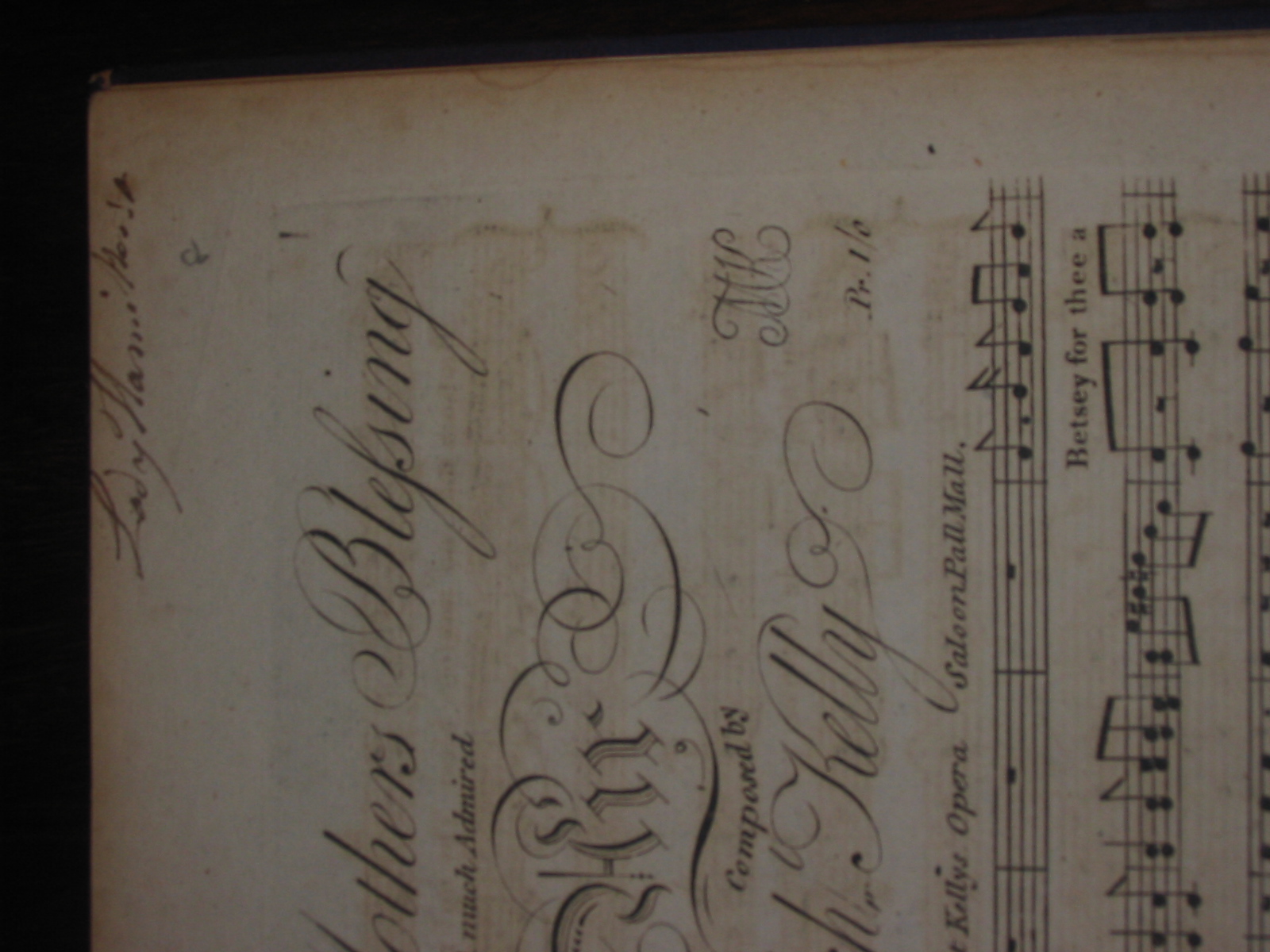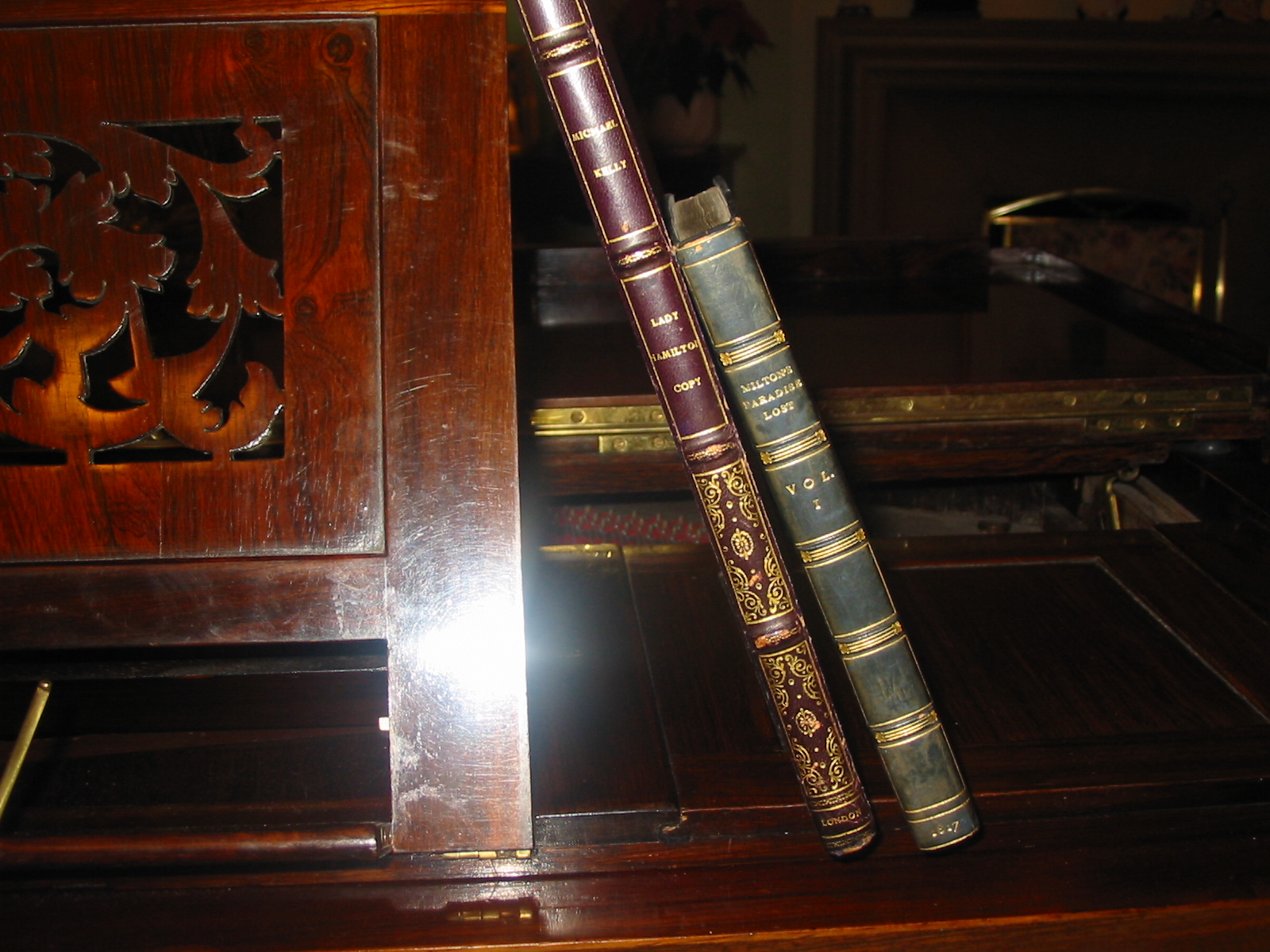|
In view of Tony’s salutary comment on the pitfalls of collecting on the Nelson’s bowl thread, I thought I’d throw another piece of meat to the sceptics!
I’d appreciate comments, no matter how negative, on this purchase I made some time ago. It’s 3 pages of engraved Georgian music entitled ‘The Mother’s Blessing’, by Michael Kelly. (See the images below)
It is bound, with a sheaf of blank pages, into a morocco and cloth bound volume which a book specialist friend has dated to c 1800-1810. The spine has five bands, one contains the words ‘The Mother’s Blessing, one the composer’s name, Michael Kelly, and a third ‘Lady Hamilton’s Copy’.
The music itself has an inscription ‘Lady Hamilton’s’ in what appears to be an 18th century hand.
I bought it from a very reputable New York bookdealer who said he had acquired it together with two other pieces of music signed by Lady Hamilton, but in his opinion, the inscription on this piece was not in Lady Hamilton’s hand.
So: did I buy a pup?
The provenance is very thin – non-existent, actually, but I want to believe it was Emma’s music, naturally. I wonder if it was acquired by an admirer who had the piece bound as a keepsake. The music also bears the monogram MK which appears to have been applied afterwards. It was not part of the engraving process. Was this Michael Kelly, the composer? Michael Kelly was a friend of Emma’s and visited Merton. He mentions in his memoirs that Nelson teased him, saying that he had heard that when he was young and living in Italy ‘he was as wild as a colt’ (Very true!) Perhaps he gave her the monogrammed copy? Another point: Other pieces of music belonging to Emma are signed variously, Emma Hamilton, Merton’ or 'Lady Hamilton'. If someone wanted to pass this off as a piece of Emma’s music, surely he/she would have faked Emma’s signature? An admirer, however, who knew whence the piece had come, would simply have noted that it was ‘Lady Hamilton’s.’
All very inconclusive, I agree. However, I think Emma was familiar with this music. One of the lines of the song says, ‘Long may my fostering arm be spared to shield you from all harm.’ I got quite a frisson when I was reading Winifred Gérin’s biography of Horatia, and there on page 251 was a letter written by Emma to Horatia during the fraught period when they were living ‘within the rules’ and their relationship was strained. Emma wrote, ‘When you shall no longer have my fostering arm to shield you, woe betide you!’ {Actually, she wrote ‘sheild’ and ‘whoe’ – this is Emma, after all.) So she was almost certainly thinking of this song when she wrote this distraught letter.
The music was registered at Stationers Hall in 1805, so I like to think that she played and sang it in happier circumstances while Nelson dandled Horatia on his knee during the ‘twenty five days’ before he sailed for Trafalgar.
| Attachments: |

music 1.JPG [ 542.04 KiB | Viewed 18365 times ]
|

IMG_0022.JPG [ 727.22 KiB | Viewed 18365 times ]
|

mucic 4.JPG [ 656.22 KiB | Viewed 18365 times ]
|
_________________
Anna
|





